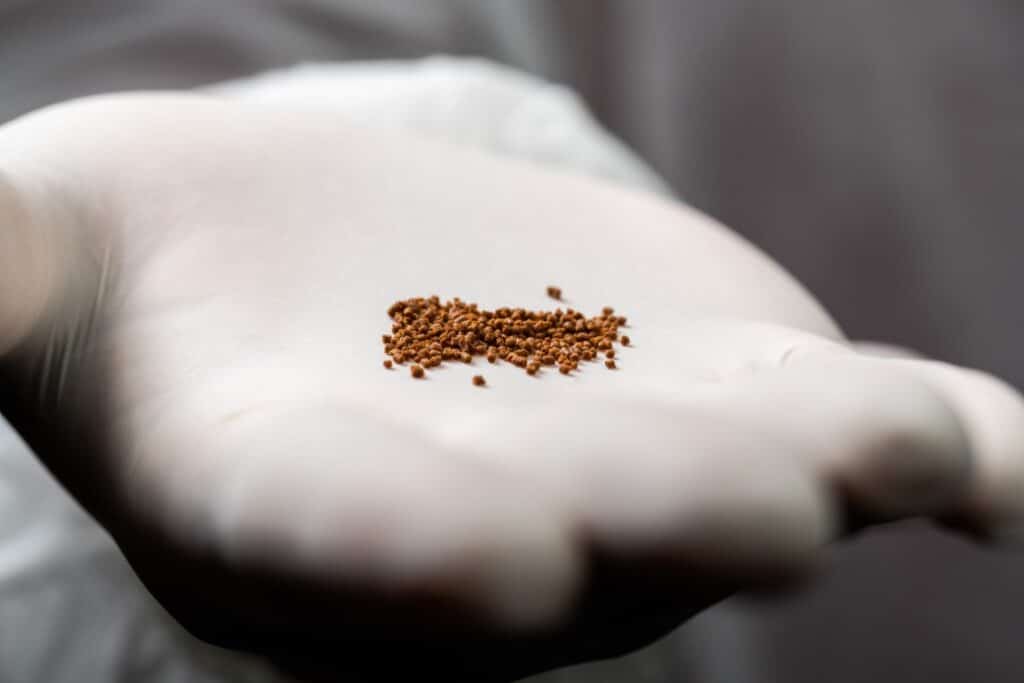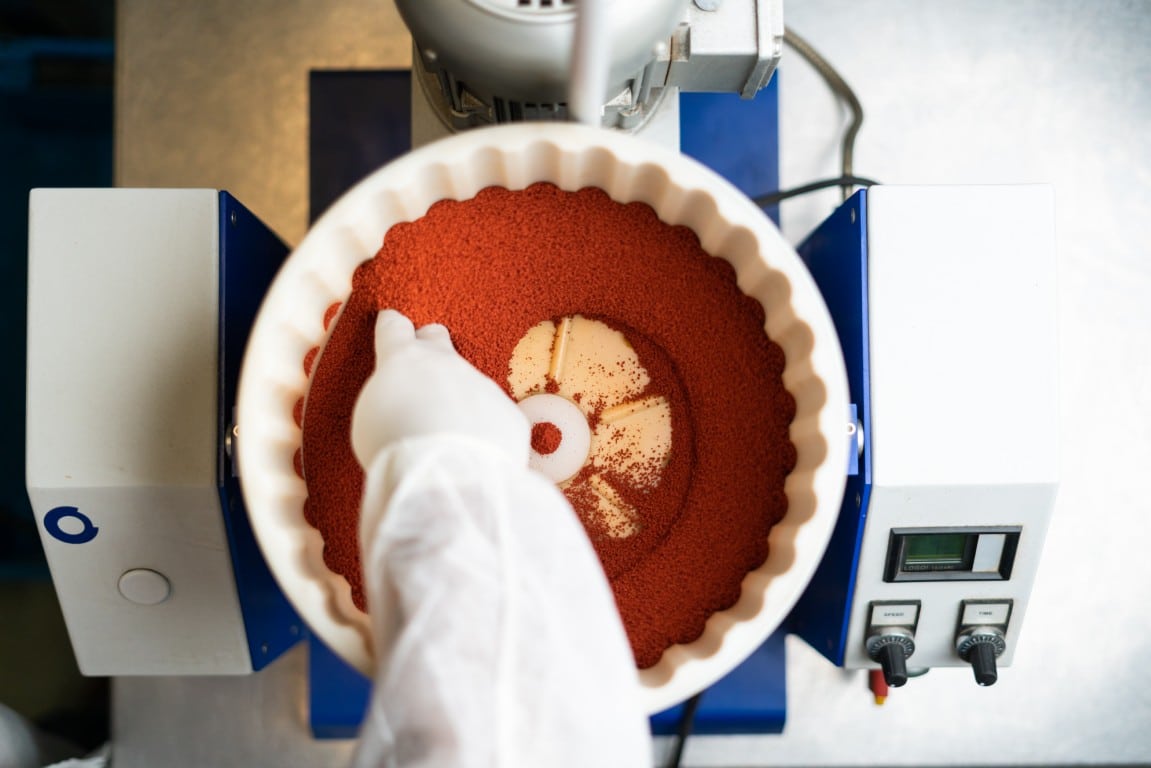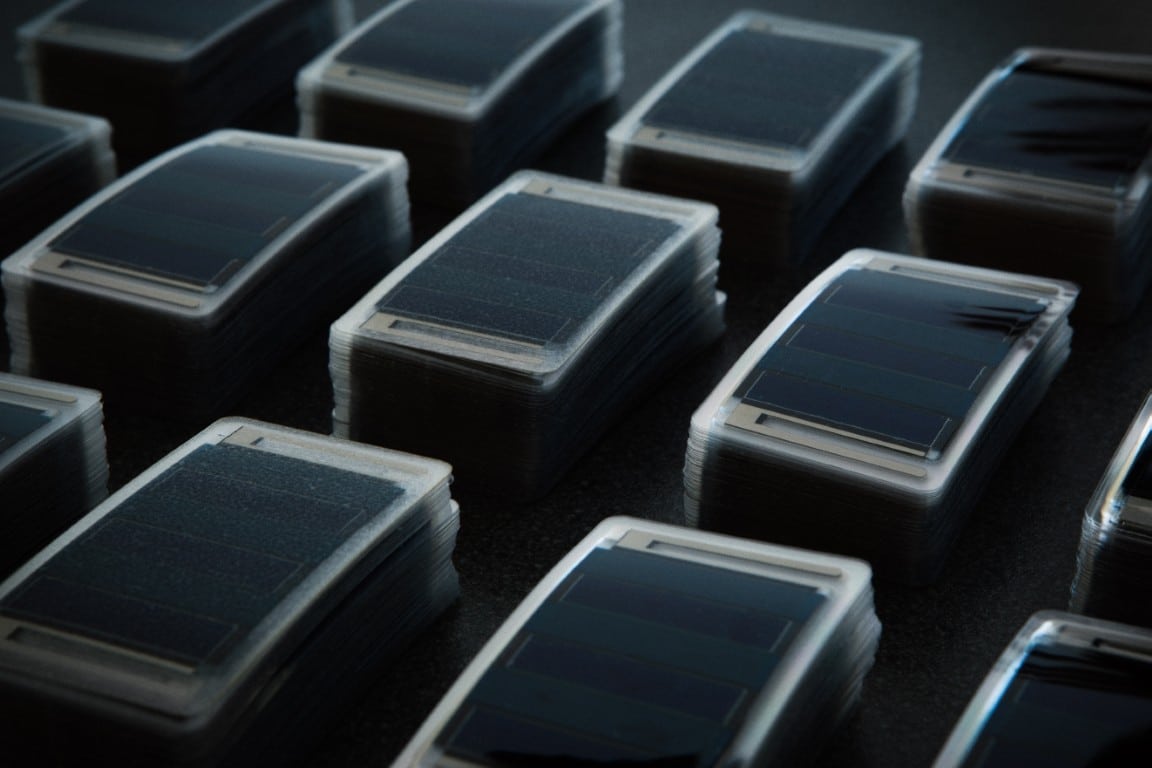Impact
The world faces an unprecedented challenge: how to feed 10 billion people by 2050 whilst minimising our impact on natural ecosystems, including ocean resources. Aquaculture, which already provides more than half of global fish consumption, offers part of the solution, but only if it can overcome critical sustainability challenges.

Overuse of fish feed can deplete wild fish resources, and intensive farming can pollute water and displace ecosystems that are important for carbon sequestration and biodiversity. Portuguese company, Sparos, aims to support sustainable aquaculture. It develops feeds for fish at different life stages that help reduce product loss by breeding healthier fish.
Sparos was established as a spinout company from the University of Algarve’s Centre of Marine Sciences in 2008. Co-founder, Jorge Dias, with a PhD is in fish nutrition, and Luis Conceição, with a PhD in aquaculture, wanted to bridge the gap between the needs of the aquaculture industry and what science could teach them about fish feed.
For the first eight years, Sparos was chiefly engaged in providing diets for use in aquaculture research and conducting research trials. The team also tested ingredients and feed additives for large companies. Conceição explains a desire to have an even greater impact: “our objective from the beginning has been to support the industry in developing better nutritional solutions.”
What began as a three-person operation providing research services has grown into a 30-strong company that is pioneering the development of specialised microfeeds for baby fish. This is a critical life stage that can determine the success or failure of entire aquaculture operations.
Aquaculture faces a fundamental challenge that agriculture solved long ago: optimal nutrition for young animals. In nature, fish larvae survive on specific live prey, but in commercial operations, this approach is neither practical nor sustainable. The solution lies in microfeeds: tiny, precisely formulated particles that fit into mouths measured in millimetres. Microfeeds must be both appealing to the fish and deliver complete nutrition.
“When fish spawn, they are about two-to-three millimetres in size,” Conceição says. “The feed, therefore, has to be below one millimetre. Some feeds are in the range of 100 to 300 micrometres, which is roughly the diameter of the point of a needle.”
Creating these microscopic nutritional powerhouses requires solving three interconnected challenges simultaneously. First, understanding the precise nutritional requirements of each species. This is information that often does not exist in scientific literature, requiring educated guesses based on experience and research. Second, sourcing ingredients that provide these nutrients sustainably whilst remaining palatable and digestible for each species. Finally, engineering physical properties to ensure the particles maintain their shape and nutritional content without excessive leaching into the water.
“Some leaching is good because the smell will attract the fish, but you do not want to lose too much because you pollute the water and the nutritional value decreases,” Conceição says. “So, we have to control the physical properties very tightly.”
The complexity becomes clear when considering that different fish species have different digestive systems, mouth sizes and feeding preferences. “We have to adapt for each species, but also for each life stage,” Conceição says.

Sparos found its growth accelerator through Eurostars, a Eureka funding mechanism for international collaboration. “Being a small company, you realise that you have to collaborate,” Conceição says. “Eurostars allowed us to work with other companies and research centres, which added to our critical mass.”
The company’s strategy was always to work with partners who could become customers or suppliers, creating win-win scenarios where successful projects immediately generate revenue streams. Eurostars supported that strategy.
Sparos’ first major success was thanks to WINFast, which was originally designed for bluefin tuna, but needed to be appropriated for greater amberjack. Whilst this species remains niche in aquaculture, the microdiet Sparos developed continues selling today and proved effective across multiple species, including sea bream, sea bass and corvina.
A big breakthrough for Sparos came with WINWrasse, developed for cleaner fish that are deployed in salmon farming operations to combat sea lice. The particular digestive limitations of the wrasse species required specialised nutrition. The resulting product became one of Sparos’ main revenue streams and continues to be used widely in Norway.
Current research projects include EarlyCod, developing microfeeds for Norway’s growing cod farming industry, and FlatFirst, targeting premium flatfish like sole, turbot and halibut. The projects address specific nutritional challenges whilst building commercial relationships with industry partners.
Whilst aquaculture has come under fire for depleting wild fish resources to provide feed for their operations, Sparos’ feeds represent less than 0.2% of a fish’s lifetime feed consumption. Yet the impact resonates throughout the entire production cycle.
“Our fish feed creates robust babies,” Conceição emphasises.”If you have a healthier baby, it is much more likely you will see a healthier adult.” An improved survival rate means fewer resources are wasted on fish that do not reach maturity, reducing the overall environmental footprint of aquaculture operations.
All Sparos’ ingredients, such as squid meal and fish protein, are sourced from certified sustainable fisheries or byproducts of human food processing. Increasingly, fish oil used in Sparos’ microfeeds is being replaced with algal oil extracted from microalgae.
The Portuguese company’s recent breakthrough with cod larvae demonstrates this impact quantitatively. Its specialised feed not only matched the growth performance of alternatives that are for a range of species, but significantly improved development of the cod’s digestive systems and eyes. Perhaps, most importantly, the feed was found to reduce skeletal deformities that are common in intensive aquaculture. “This improves fish wellbeing and has a financial benefit,” Conceição says.
As aquaculture continues expanding to meet global protein demands, companies like Sparos represent essential infrastructure for sustainable growth. Its specialised approach in developing tailored nutrition for specific species, rather than one-size-fits-all solutions, addresses industry needs whilst supporting environmental responsibility.
“We are committed to being part of the solution for human nutrition and not part of the problem,” Conceição says. “That is our objective.”
With growing awareness of sustainability issues and consumer demand for responsibly farmed seafood, Sparos’ precision nutrition approach offers aquaculture operators a path towards more efficient, environmentally responsible production, one microdiet at a time.
Through our funding programmes, national/regional funding bodies support SMEs, large companies, universities and research organisations conducting R&D and innovation projects together beyond borders to achieve great results. Learn more about our programmes and discover whether we have a funding opportunity for your organisation.
Eureka programme and project name: Eurostars-1 MARAQUAFEED
Countries involved: Portugal, Norway
Project duration: 2012-2015
Eureka programme and project name: Eurostars-1 WEANTUNA
Countries involved: Portugal, Spain
Project duration: 2012-2015
Eureka programme and project name: Eurostars-3 EarlyCOD
Countries involved: Portugal, Norway
Project duration: 2022-2024
Eureka programme and project name: Eurostars-3 HATCHTOOLS
Countries involved: Portugal, United Kingdom
Project duration: 2022-2025
Eureka programme and project name: Eurostars-3 OptiFeeSH
Countries involved: Portugal, Cyprus, Greece
Project duration: 2023-2025
Eureka programme and project name: Eurostars-3 FlatFIRST
Countries involved: Portugal, Norway
Project duration: 2024-2027
Got an innovative idea? Explore our funding opportunities designed to support groundbreaking projects and help turn your vision into reality.
Secure the resources you need to bring your ideas to life.
See all open calls

